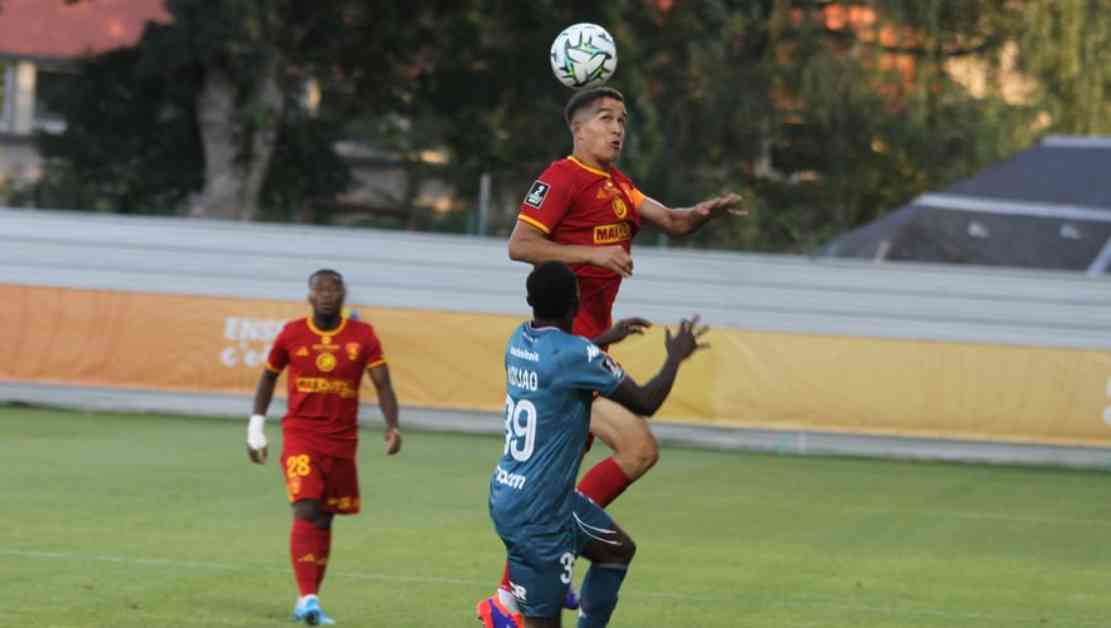The start of the 2024-2025 season for Rodez Aveyron Football (RAF) is shrouded in uncertainty and peculiar circumstances. As the club prepares to embark on a new campaign in Ligue 2, a myriad of questions loom over the team, ranging from TV rights to match schedules and player recruitment.
### TV Rights Dilemma
The issue of TV rights has been a contentious topic in French professional football for months, affecting both Ligue 1 and Ligue 2. The British group DAZN recently agreed to a broadcasting deal with the Ligue de Football Professionnel (LFP) to showcase Ligue 1 matches. Additionally, BeIN Sports has secured the rights to televise one Ligue 1 game per matchday along with all Ligue 2 fixtures.
However, the exorbitant subscription fees for DAZN have deterred many football enthusiasts, leading to a significant decline in subscribers. The group’s goal of reaching 1.5 million subscribers within six months seems increasingly challenging, especially with widespread piracy of Ligue 1 matches. This raises concerns about the long-term viability of DAZN’s substantial investment of 400 million euros annually for five years.
The financial stability of clubs in Ligue 2 is intricately linked to the TV rights revenue shared with Ligue 1. Clubs in the second tier receive 18% of the combined TV rights income from both divisions, highlighting the importance of monitoring developments in Ligue 1 to gauge the financial landscape of Ligue 2.
### BeIN Sports Controversy
BeIN Sports’ decision to broadcast Ligue 2 matches on Friday evenings has sparked backlash from supporters who advocate for weekend games. The group’s reluctance to shift matches to Saturday nights due to scheduling constraints has fueled discontent among fans. BeIN’s threat to withdraw from broadcasting Ligue 2 if match schedules are altered underscores the delicate balance between financial viability and fan preferences.
### RAF’s Financial Concerns
Rodez Aveyron Football finds itself in a precarious position amidst the uncertainty surrounding TV rights and revenue distribution. With TV rights accounting for over 50% of their budget, the club, like many others, faces the prospect of financial instability without this crucial income stream. The potential ramifications of a disrupted TV rights landscape have cast a shadow over the club’s operations and planning for the future.
The recent summer transfer window was marked by financial prudence and strategic player sales, exemplified by the departures of Corrédor and Haag to German clubs. While some fans may lament the perceived decline in the team’s sporting quality, these decisions reflect a pragmatic approach to safeguarding the club’s financial health in the face of uncertainty.
### The Legacy of Financial Turmoil
The specter of financial turmoil and its lasting impact on football clubs is not a new phenomenon. For those who witnessed Rodez’s struggles in the 1990s, following the team’s relegation from Division 2 due to financial difficulties, the road to recovery was long and arduous. Rebuilding the team and ensuring financial stability are paramount considerations for RAF and other clubs navigating the complex landscape of modern football economics.
As the new season unfolds, Rodez Aveyron Football faces a myriad of challenges and uncertainties that will shape the club’s trajectory in Ligue 2. The interplay of TV rights, match scheduling, and recruitment decisions underscores the intricate balance between sporting success and financial sustainability in the competitive realm of professional football. Amidst the evolving landscape of the sport, clubs like RAF must navigate these complexities with foresight and strategic planning to secure their place in the football hierarchy.

